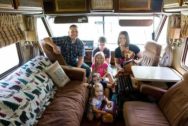
Twenty seventeen

I am not believing it’s 2017 already, in just 3 short years, it’s going to be the year 2020, now that will take some getting used to! People traditionally pick the New Year day to make their resolutions, I’ve never been one to stand on ceremony, I don’t do resolutions. I prefer setting goals, big and small. I will admit that I haven’t been setting goals for a while and I need to start doing that again. I think one thing I need to do is save more money, since we live very much on the cheap it should be easy, right? Well not so much but it’s something that has to be done.
I also want to, need to, start working on upgrading and replacing my solar system. I will keep my old stuff and use it in other locations around the Sky Castle, I really want to have my refrigerator (chest freezer to fridge conversion) on its own system, separate from everything else, I’ll most likely use my current setup for that and have the new hardware for everything else.
The reason I like separate systems is as a backup in case something should fail, having redundant systems is something I recognized as very important from the very beginning. Speaking of redundant systems, I have 2 separate on demand water heaters, one in my kitchen over the sink, the other in the shower. A few months ago, the one in the kitchen started acting strangely, when you turn on the hot tap, the tank clicks a piezo starter and ignites the propane, I noticed that when the water coming through was warmer (from the water tank), it worked just fine. But if the water coming through was really cold, the piezo clicker would continue clicking after the fire was lit, then it would shut off the entire thing. I thought something was failing on the system. We went the whole summer like this because it would work while the water coming through was warmish, not a problem in the summer. But once winter started in earnest, I knew we had to figure out what part needed to be fixed or replaced.
On a whim, I changed out the batteries for the piezo clicker and voila! It worked again, well duh! It was needing fresh batteries, what threw me was the fact that it worked when the water was warmer, then it would stop working if the water was icy cold, it would work in the daytime when the temps were mild, but once it began to get cold at night, it would stop working right. So now I have both of my water heaters working again.
As I said above, I don’t “do” resolutions, especially not ones based on an arbitrary date, I set goals, big ones, small one, and even achieve many of them, we all need …
